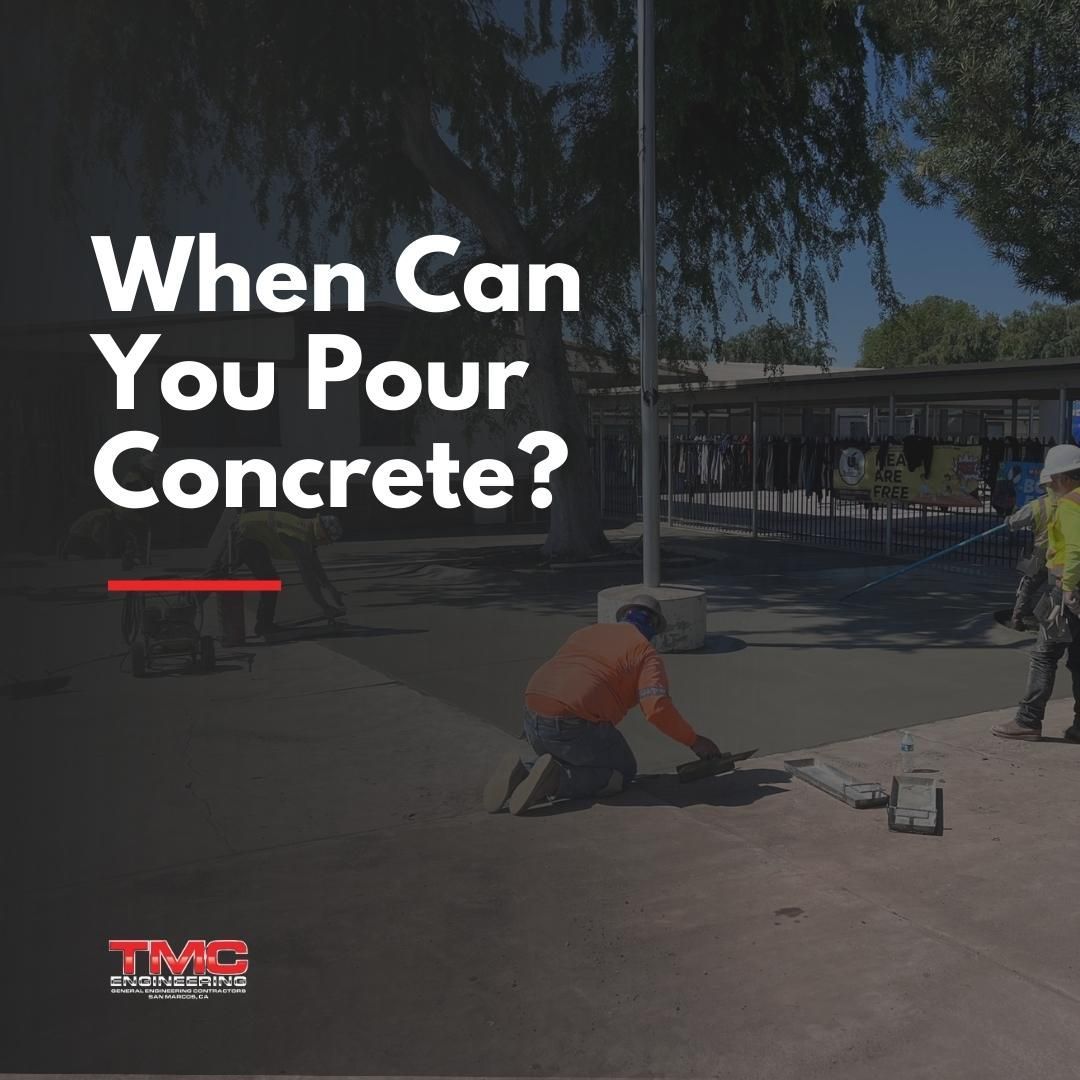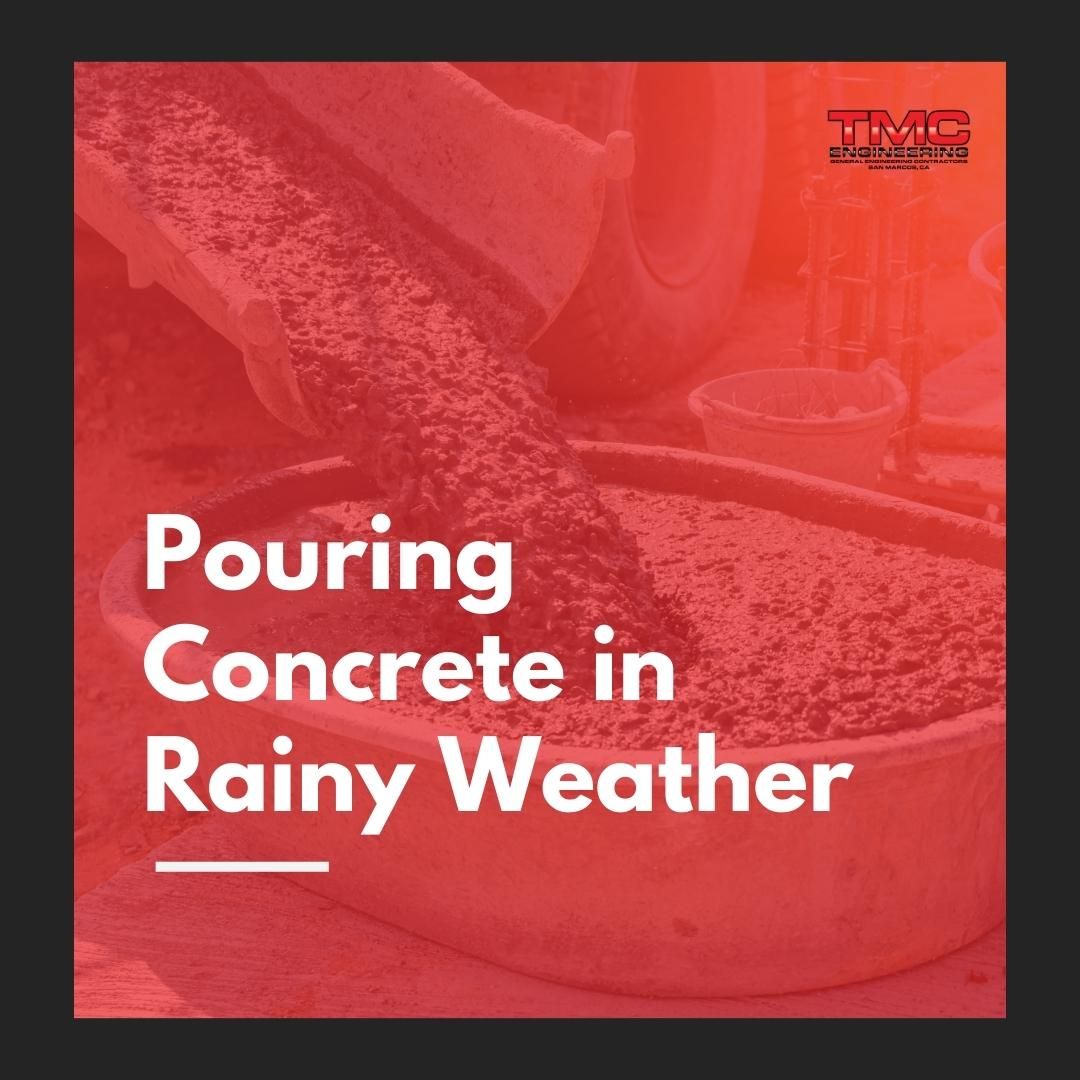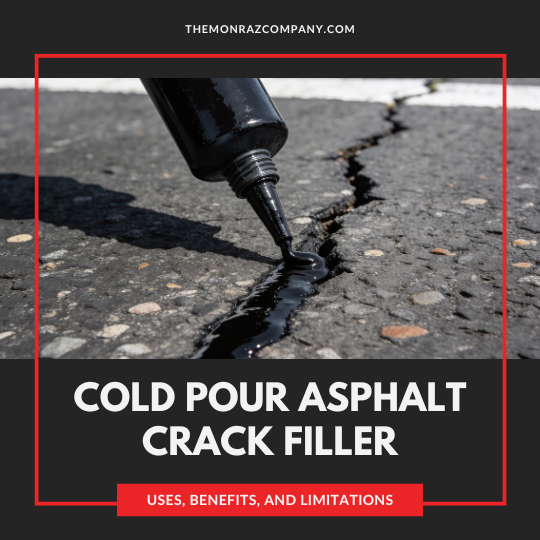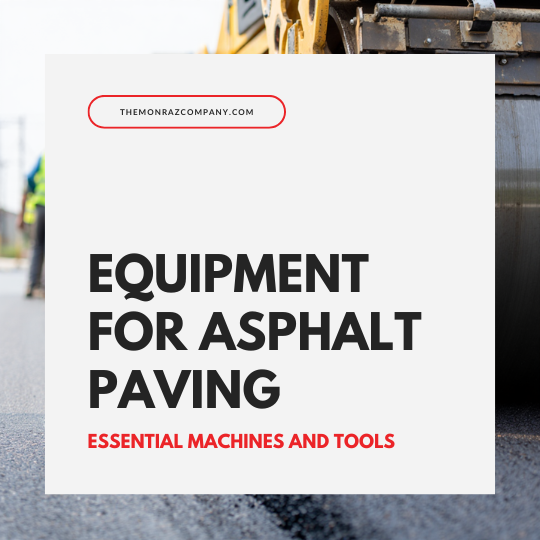When Can You Pour Concrete?
Concrete is the backbone of countless structures, known for its strength, durability, versatility, and fire resistance. This incredible construction material has revolutionized countless industr ies. But as with any great thing, there are important factors to consider when working with concrete.
Today, we’re diving into the topic of pouring concrete and the various factors that can affect the process. Whether you’re working on a concrete slab , a foundation , or other concrete projects, understanding the ideal conditions for pouring concrete is crucial for achieving optimal results. Timing, temperature, and other variables that we’ll discuss below play an important role in ensuring that concrete sets properly and achieves its full potentia l!
Let’s explore the considerations for pouring concrete so it sets properly and gives the desired result:

When Can You Pour Concrete?
The ideal temperature for pouring concrete varies depending on the time of year, the project, the mix, and it’s even dependent on where you live. Let’s explore some possible scenarios below!

Pouring Concrete in Cold Weather
When it comes to pouring concrete in cold weather, there are a few key factors to keep in mind. Freezing temperatures can significantly impact the setting time and curing process of concrete. As the temperatures drop, the chemical reactions that lead to concrete setting slow down, leading to longer setting times. This can definitely delay the overall progress of your project!
To mitigate these challenges, it’s important to consider the following:
Temperature Thresholds
It is generally recommended to avoid pouring concrete when the temperature consistently drops below 40°F (4°C). At these low temperatures, concrete may not set properly, resulting in weaker structures. Wait for milder weather conditions or consider using cold-weather techniques!
Cold-Weather Techniques
If pouring concrete in colder temperatures is unavoidable, there are steps you can take to mitigate the challenges. For example, adding accelerators to the mix can promote faster set times. Additionally, using insulating blankets or enclosures to protect the concrete from freezing temperatures can help maintain the necessary conditions for proper curing.
Some craftsmen embrace a technique known as “hot water concrete”. By using hot water in the mixing process, the concrete sets at a more controlled pace, reducing the chances of cracking.
Pouring Concrete in Warm Weather
On the flip side, pouring concrete in hot weather also presents its own set of challenges. High temperatures can cause the water in the mix to evaporate quickly, leading to rapid drying and potential cracking!
To ensure successful concrete pouring in hot weather conditions, consider the following:
Timing
Plan your concrete pours during the cooler parts of the day, such as early morning or late afternoon, to avoid the peak heat. This allows for a longer window of time for the concrete to set before the temperature becomes intense.
Intense heat can cause concrete to set too quickly, leading to shrinkage cracks.
Hydration and Moisture
In hot weather, it’s crucial to keep the concrete hydrated. Sprinkling the area with water before pouring can help prevent premature drying. Additionally, using cooler water during the mixing process can help regulate the temperature of the concrete.
Wind Speed
High wind speeds can accelerate the evaporation of moisture from the concrete surface, leading to uneven curing and potential cracking. Consider using windbreaks or creating a sheltered environment to protect the freshly poured concrete from strong winds.

Pouring Concrete in Rainy Weather
Rainy weather can complicate the concrete pouring process, as excessive moisture can affect the strength and durability of the final product! Consider these recommendations:
Monitor Weather Forecasts
Keep a close eye on weather forecasts to plan your concrete pouring accordingly. You should avoid pouring concrete during heavy rain or when rain is expected within 24 hours of the pour!
Protective Measures
If light rain is forecasted, consider using plastic sheeting or other protective covers to shield the freshly poured concrete from direct contact with raindrops. However, ensure proper ventilation to allow for proper concrete curing!
General Considerations
When deciding to pour concrete, it’s important to consider other factors beyond just weather conditions. These factors include:
- Concrete Mix Design: Work with a professional concrete supplier to determine the appropriate mix design for your specific project. The mix design takes into account various factors, including weather conditions, to optimize the properties of the concrete.
- Project Timeline : Plan your concrete pours in alignment with the overall project timeline. Avoid rushing the process or pouring concrete too early, as this can lead to subpar results.
- Consult an Expert: When in doubt, consult with experienced contractor s like us or engineers who specialize in concrete construction. They can provide valuable insights and guidance tailored to your specific project!
Pouring concrete is a delicate process that requires careful consideration of environmental factors.
While concrete works best under optimal conditions, we understand that construction projects don’t always align with ideal weather. By understanding the effects of temperature on concrete settings and taking the necessary precautions, you can set yourself up for success.
Remember, in cold weather, avoid pouring concrete when temperatures consistently drop below 40°F (4°C) to ensure proper curing and strength. In hot weather, plan strategically, keeping hydration and moisture levels in check to prevent premature drying and cracking. By following these recommendations and seeking professional advice, you can ensure successful concrete pours that meet and exceed expectations.
As always, safety and quality are our top priorities at TMC Engineering. By following these guidelines, you’ll be well-equipped to tackle concrete projects in various weather conditions. Stay tuned for more informative posts and exciting updates from our page . We also offer a wide range of services from asphalt paving to striping, sealing, crack filling , and concrete projects . Together, we can complete exceptional projects that stand the test of time!
TMC can pour this concrete for you! All you need to do is contact us for a free quote.




